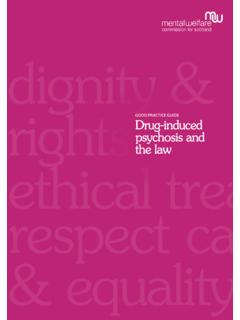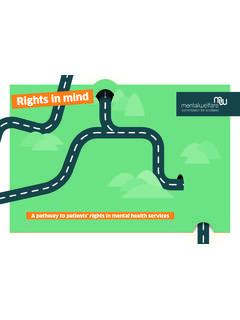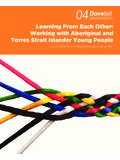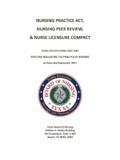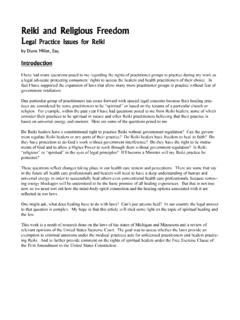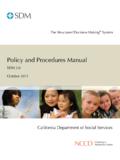Transcription of GOOD PRACTICE GUIDE ‘Significantly impaired …
1 good PRACTICE GUIDE Significantly impaired decision- making ability in individuals with eating disordersREVIEWED JUNE 2017 This document was reviewed in Spring 2017 in light of changes to the Mental Health Act. We found no changes were required. It was originally published in April we wrote this guidance 5 The use of mental health legislation for individuals with eating disorders 5 SIDMA what does it mean? 6 SIDMA in general 7 SIDMA in individuals with eating disorders 8 Documenting SIDMA 11 Conclusion how to justify and document SIDMA134 Our aimWe aim to ensure that care, treatment and support are lawful and respect the rights and promote the welfare of individuals with mental illness, learning disability and related conditions. We do this by empowering individuals and their carers and influencing and challenging service providers and policy makers.
2 Why we do thisIndividuals may be vulnerable because they are less able at times to safeguard their own interests. They can have restrictions placed on them in order to receive care and treatment. When this happens, we make sure it is legal and we areWe are an independent organisation set up by Parliament with a range of duties under mental health and incapacity law. We draw on our experience as health and social care staff, service users and valuesWe believe individuals with mental illness, learning disability and related conditions should be treated with the same respect for their equality and human rights as all other citizens. They have the right to: be treated with dignity and respect ethical and lawful treatment and to live free from abuse, neglect or discrimination care and treatment that best suit their needs recovery from mental illness lead as fulfilling a life as possibleWhat we do Much of our work is at the complex interface between the individual s rights, the law and ethics and the care the person is receiving.
3 We work across the continuum of health and social care. We find out whether individual care and treatment is in line with the law and good PRACTICE We challenge service providers to deliver best PRACTICE in mental health and learning disability care We follow up on individual cases where we have concerns and may investigate further We provide information, advice and guidance to individuals, carers and service providers We have a strong and influential voice in service policy and development We promote best PRACTICE in applying mental health and incapacity law to individuals care andtreatment5 Why we wrote this guidanceSignificantly impaired decision-making ability (SIDMA) is one of the grounds for compulsory treatment under the Mental Health (Care and Treatment) (Scotland) Act 2003 (the 2003 Act).
4 It must be considered before an individual is subject to civil compulsory treatment, although it does not apply for individuals who are treated under the 2003 Act having been accused of, or committed, an 2003 Act does not define SIDMA. The code of PRACTICE makes some attempt to state what SIDMA means. But it is up to the medical practitioner to assess whether or not the individual has SIDMA. The Mental Health Tribunal will test this assessment for all applications, reviews and heard concerns that the SIDMA criterion was hard to interpret for individuals with eating disorders. It is a relatively new concept in mental health law in Scotland. In other jurisdictions, notably England and Wales, there is no requirement to consider the individual s capacity to make his/her own treatment decisions, although mental health practitioners will take this into account when deciding on the need for compulsory wanted to look at how the SIDMA test can be applied to individuals with eating disorders where treatment under the 2003 Act is being considered.
5 The use of mental health legislation for individuals with eating disordersIt is beyond the scope of this guidance to determine the benefits and drawbacks of the use of compulsory treatment for individuals with eating disorders. Broadly, the relevant literature tends to suggest that it depends on how it is viewed by the individual. Some research suggested that interfering with individual autonomy leads to a worse outcome but this is not a consistent finding1. An important finding is the importance of relationships. If compulsion is used within a framework of good relationships among the individual with an eating disorder, parents and professionals, it can be viewed positively. And it is important to remember that informal coercion think compulsory measures have a place in the treatment of individuals with eating disorders.
6 In anorexia nervosa, there can be serious risks to the individual if weight loss is extreme. The risk of coercion without the use of formal measures is that the individual does not have the protections available under the 2003 Ayton, A., Keen, C. & Lask, B. (2009) Pros and cons of using the Mental Health Act for severe eating disorders in adolescents. European Eating Disorders Review, 17, 14 232 Tan, J. O. A., Hope, T. & Stewart, A (2003b) Anorexia nervosa and personal identity: the accounts of patients and their parents. International Journal of Law and Psychiatry, 26, 696-7076 Protections include: The requirement to demonstrate that care and treatment comply with the statutory principles of the 2003 Act; The individual s ability to apply to the Tribunal for the order to be revoked or varied; A Tribunal hearing before treatment can continue under a compulsory treatment order; The provision of Legal Aid for legal representation at a Tribunal (although the patient or named person can chose a representative who is not legally qualified, if they wish); Safeguards for medical treatment, notably artificial nutrition without consent and administration of medication beyond two this regard, it is important to consider human rights legislation.
7 All actions must accord with the articles of the European Convention on Human articles include: Article 2: the right to life, where failure to intervene may lead to danger of death; Article 3: the right to be free from torture and other inhuman or degrading treatment; Article 5: the right to liberty and security of the individual. Any infringement of Article 5 rights should allow the individual a right of appeal; Article 6: the right to a fair trial . This includes the right to a fair procedure in relation to civil rights and liberties; Article 8; the right to respect for private and family life. Any interference with Article 8 rights must be necessary, proportionate, pursue a legitimate aim and be in accordance with the of legal status, anyone with an eating disorder has the right of access to independent advocacy and can make an advance statement about treatment that she/he would or would not what does it mean?
8 Specifically, SIDMA applies to medical treatment. The 2003 Act requires the medical practitioner to determine: The presence of mental disorder (defined broadly but with some important exceptions3); The availability of medical treatment (defined broadly4); The presence of SIDMA in relation to that treatment; Risk (to the individual s health, safety or welfare or the safety of any other person); The necessity of an relation to individuals with eating disorders, all five grounds must be considered. 3 See section 328 of the Act See section 329 of the Act are focussing on the SIDMA test. However, when considering SIDMA, the practitioner is also considering the availability and effectiveness of the medical treatment, risk and SIDMA is not defined, there are two relevant definitions relating to incapacity and medical treatment in The Adults with Incapacity (Scotland) Act 2000 defines incapacity as being incapable of acting, or making decisions, or understanding decisions, or communicating decisions or retaining the memory of decisions by reason of mental disorder or inability to communicate due to physical Case law had determined that, in order to be able to consent to medical treatment, the individual must be able to.
9 (a) Understand the information relevant to the decision,(b) Retain that information, (c) Use or weigh that information as part of the process of making the decision, (d) Communicate his decision (whether by talking, using sign language or any other means).The latter definition formed the basis for the definition of incapacity in the Mental Capacity Act for England and Wales. It also appears in the code of PRACTICE for the 2003 Act. The two definitions are compatible when it comes to medical treatment, but the second definition is more specific to treatment is essential to remember that capacity is decision-specific. The individual may be capable of making some decisions about medical treatment but not in generalAn analysis published in 2010 showed five broad categories of reasons given for SIDMA: lack of insight, cognitive impairment, presence of psychosis, severe depressive symptoms and learning disability.
10 5 These were statements made on forms supporting or authorising compulsory treatment. Some statements did not appear to provide sufficient justification of the SIDMA criterion. The analysis stated that it is necessary for the medical practitioner to justify clearly how the SIDMA criterion is met, rather than simply reiterating that SIDMA exists. The question of the significance of the impaired decision-making is one for the Tribunal to decide after hearing evidence. SIDMA applies to the whole package of medical treatment. While an individual may have SIDMA in relation to the totality of medical treatment needed, he/she may have capacity to consent to individual treatments or to refuse certain Shek, E., Lyons, D. & Taylor, M. (2010) Understanding significant impaired decision-making ability with regard to treatment for mental disorder: an empirical analysis.

